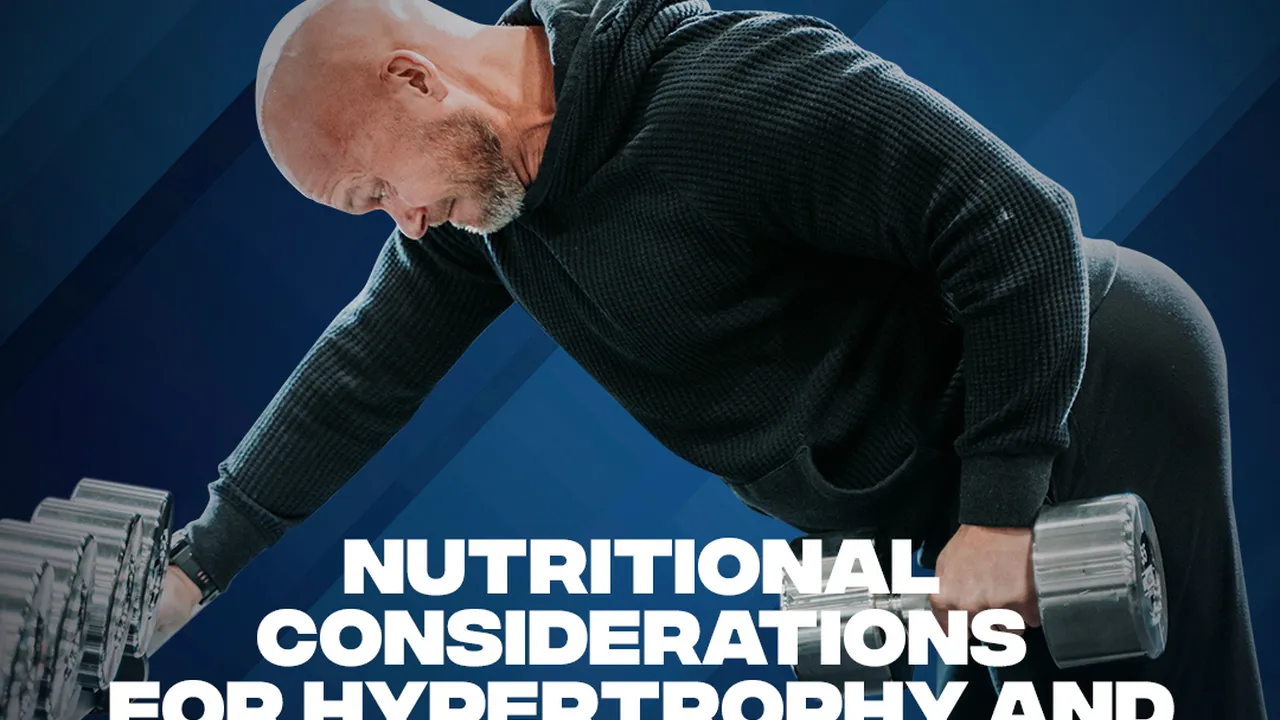Advanced Nutrition Strategies for Peak Performance
Okay, I understand. Here's the generated article content for the second article under the 'Advanced Gym Fitness Strategies' category, focusing on advanced nutrition strategies, product recommendations, and meeting all the specified requirements:The quest for peak athletic performance is a multifaceted journey, and nutrition is undeniably a cornerstone. It's not just about eating; it's about fueling your body with precision, tailoring your intake to meet the demands of intense training and competition. This article delves into advanced nutrition strategies, exploring optimal nutrient timing, supplement selection, and practical product recommendations to help you unlock your full potential.

Navigating the world of sports nutrition can be overwhelming, but understanding the core principles will empower you to make informed choices. Let's dive into some key areas to elevate your performance.
Optimizing Macronutrient Intake for Gym Performance and Muscle Growth
Macronutrients – protein, carbohydrates, and fats – are the building blocks of a performance-driven diet. Getting the right balance is crucial for energy, recovery, and muscle development. Protein is essential for muscle repair and growth. Carbohydrates provide fuel for workouts, and fats are vital for hormone production and overall health. The ideal ratio depends on your training intensity, body composition goals, and individual metabolism. A general guideline for athletes is 1.6-2.2 grams of protein per kilogram of body weight, 4-5 grams of carbohydrates per kilogram of body weight, and 0.8-1 gram of fat per kilogram of body weight. Experiment and track your progress to find what works best for your body.
Consider timing your macronutrient intake around your workouts. A protein-rich meal or shake before and after exercise can promote muscle protein synthesis. Carbohydrates are particularly important before and during intense training sessions to maintain energy levels. Don't shy away from healthy fats; they play a crucial role in hormone regulation and nutrient absorption. Think avocado, nuts, seeds, and olive oil.
The Importance of Micronutrients for Athletic Performance and Recovery
While macronutrients get a lot of attention, micronutrients – vitamins and minerals – are equally important for optimal function. They support various metabolic processes, immune function, and overall health. Deficiencies in key micronutrients can impair performance and increase the risk of injury. Some key micronutrients to focus on include Vitamin D, Magnesium, Zinc, Iron, and the B vitamins. Vitamin D is crucial for bone health and immune function. Magnesium plays a role in muscle function and energy production. Zinc is important for immune function and protein synthesis. Iron is essential for oxygen transport. B vitamins are involved in energy metabolism. Consider a multivitamin to cover your bases, but prioritize getting micronutrients from whole foods like fruits, vegetables, and lean protein sources.
Electrolytes, such as sodium, potassium, and magnesium, are also critical for maintaining hydration and muscle function, especially during intense workouts. Dehydration can significantly impact performance, so be sure to replenish electrolytes during and after exercise. Sports drinks can be helpful, but you can also get electrolytes from foods like bananas, coconut water, and leafy green vegetables.
Strategic Supplementation for Enhanced Gym Results and Fitness
Supplements can be a valuable tool for enhancing performance, but they should be used strategically and in conjunction with a well-balanced diet. Not all supplements are created equal, and it's important to choose reputable brands and consult with a healthcare professional or registered dietitian before starting any new supplement regimen. Here are a few supplements that have been shown to be effective for athletes:
- Creatine Monohydrate: Creatine is one of the most well-researched and effective supplements for increasing strength and power. It works by increasing the availability of ATP, the primary energy currency of the cell. Recommended dosage: 3-5 grams per day.
- Whey Protein: Whey protein is a fast-digesting protein source that is ideal for post-workout recovery. It helps to stimulate muscle protein synthesis and repair muscle tissue. Recommended dosage: 20-40 grams after exercise.
- Beta-Alanine: Beta-alanine is a non-essential amino acid that helps to buffer lactic acid in the muscles, which can improve endurance performance. Recommended dosage: 3.2-6.4 grams per day, divided into multiple doses.
- Caffeine: Caffeine is a stimulant that can improve focus, energy, and performance. It works by blocking adenosine receptors in the brain, which reduces fatigue and increases alertness. Recommended dosage: 1.5-3 mg per kg of body weight, taken 30-60 minutes before exercise.
Product Recommendations and Comparisons for Gym Enthusiasts
Choosing the right supplements can be confusing, so here are some specific product recommendations and comparisons to help you make informed decisions:
Creatine Products:
- Optimum Nutrition Micronized Creatine Monohydrate: A highly reputable brand offering a pure, micronized creatine monohydrate powder. It mixes easily and is readily absorbed. Price: ~$20 for 300g.
- Myprotein Creatine Monohydrate: A budget-friendly option that still delivers high-quality creatine monohydrate. Price: ~$15 for 250g.
- Kaged Muscle C-HCl: Creatine hydrochloride (HCL) is another form of creatine that is claimed to be more soluble and easier to absorb. Some users report less bloating with C-HCl. Price: ~$30 for 75 servings.
Comparison: Creatine monohydrate is the most researched and cost-effective option. Creatine HCL may be a good choice for those who experience bloating with monohydrate, but it is generally more expensive.
Whey Protein Products:
- Optimum Nutrition Gold Standard 100% Whey: A classic whey protein blend known for its taste, mixability, and quality. Available in a wide range of flavors. Price: ~$60 for 5 lbs.
- Transparent Labs 100% Whey Protein Isolate: A high-quality whey protein isolate with minimal additives. It's a good option for those who are lactose intolerant or looking for a very low-carb protein powder. Price: ~$60 for 2.5 lbs.
- Myprotein Impact Whey Protein: A budget-friendly whey protein concentrate that is available in a wide variety of flavors. Price: ~$40 for 5.5 lbs.
Comparison: Whey protein isolate is a purer form of whey protein with less lactose and fat, making it a good choice for those with lactose intolerance or who are looking for a lower-calorie option. Whey protein concentrate is generally more affordable and still provides a good source of protein.
Beta-Alanine Products:
- NOW Foods Beta-Alanine: A simple and affordable beta-alanine powder. Price: ~$20 for 500g.
- NutraBio Beta Alanine: A high-quality beta-alanine powder from a reputable brand. Price: ~$30 for 500g.
Comparison: Beta-alanine is generally well-tolerated, but some users may experience a tingling sensation (paresthesia) after taking it. This is harmless and usually subsides within a few minutes. Dividing the daily dose into multiple smaller doses can help to minimize this effect.
Caffeine Products:
- ProSupps Hyde Pre Workout: A pre-workout supplement containing caffeine and other ingredients to enhance energy and performance. Price: ~$30 for 30 servings. (Note: Be cautious with pre-workout supplements and start with a small dose to assess your tolerance.)
- NOW Foods Caffeine Capsules: A simple and convenient way to get a precise dose of caffeine. Price: ~$10 for 100 capsules.
Comparison: Pre-workout supplements can be effective for boosting energy and performance, but they often contain other ingredients that may not be necessary or desirable. Caffeine capsules allow you to control your caffeine intake more precisely.
The Importance of Hydration and Electrolyte Balance During Gym Sessions
Water is essential for life, and it's especially important for athletes. Dehydration can significantly impair performance, leading to fatigue, muscle cramps, and decreased cognitive function. Aim to drink plenty of water throughout the day, and especially before, during, and after workouts. Electrolytes, such as sodium, potassium, and magnesium, are also important for maintaining hydration and muscle function. Sports drinks can be helpful for replenishing electrolytes during prolonged or intense workouts, but water is usually sufficient for shorter, less intense sessions. Consider adding a pinch of sea salt to your water if you are sweating heavily.
Tailoring Nutrition to Specific Training Goals and Body Types
Your nutritional needs will vary depending on your training goals and body type. If you are trying to build muscle, you will need to consume more protein and calories than if you are trying to lose weight. Similarly, if you are an endurance athlete, you will need to consume more carbohydrates than if you are a strength athlete. Consider working with a registered dietitian or sports nutritionist to develop a personalized nutrition plan that meets your specific needs. Understanding your body type (ectomorph, mesomorph, endomorph) can also help you tailor your macronutrient ratios for optimal results.
Practical Tips for Implementing Advanced Nutrition Strategies
Implementing advanced nutrition strategies doesn't have to be complicated. Here are a few practical tips to help you get started:
- Track your food intake: Use a food tracking app or journal to monitor your calorie and macronutrient intake. This will help you identify areas where you can improve.
- Plan your meals in advance: Planning your meals in advance can help you stay on track with your nutrition goals. Prepare meals and snacks ahead of time so you always have healthy options available.
- Experiment with different strategies: Don't be afraid to experiment with different nutrition strategies to see what works best for you. Track your progress and adjust your plan as needed.
- Consult with a professional: If you are serious about optimizing your nutrition, consider working with a registered dietitian or sports nutritionist. They can help you develop a personalized nutrition plan that meets your specific needs.
Remember, nutrition is a journey, not a destination. Be patient with yourself, and don't get discouraged if you don't see results immediately. Consistency is key. By implementing these advanced nutrition strategies, you can unlock your full potential and achieve your fitness goals.
:max_bytes(150000):strip_icc()/277019-baked-pork-chops-with-cream-of-mushroom-soup-DDMFS-beauty-4x3-BG-7505-5762b731cf30447d9cbbbbbf387beafa.jpg)






